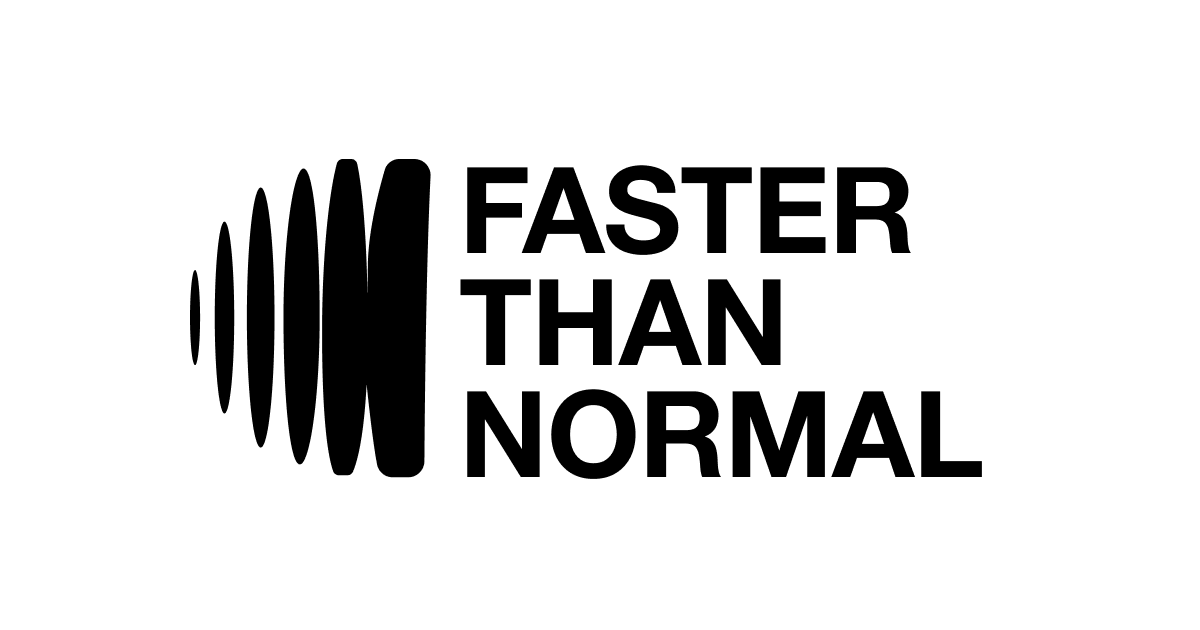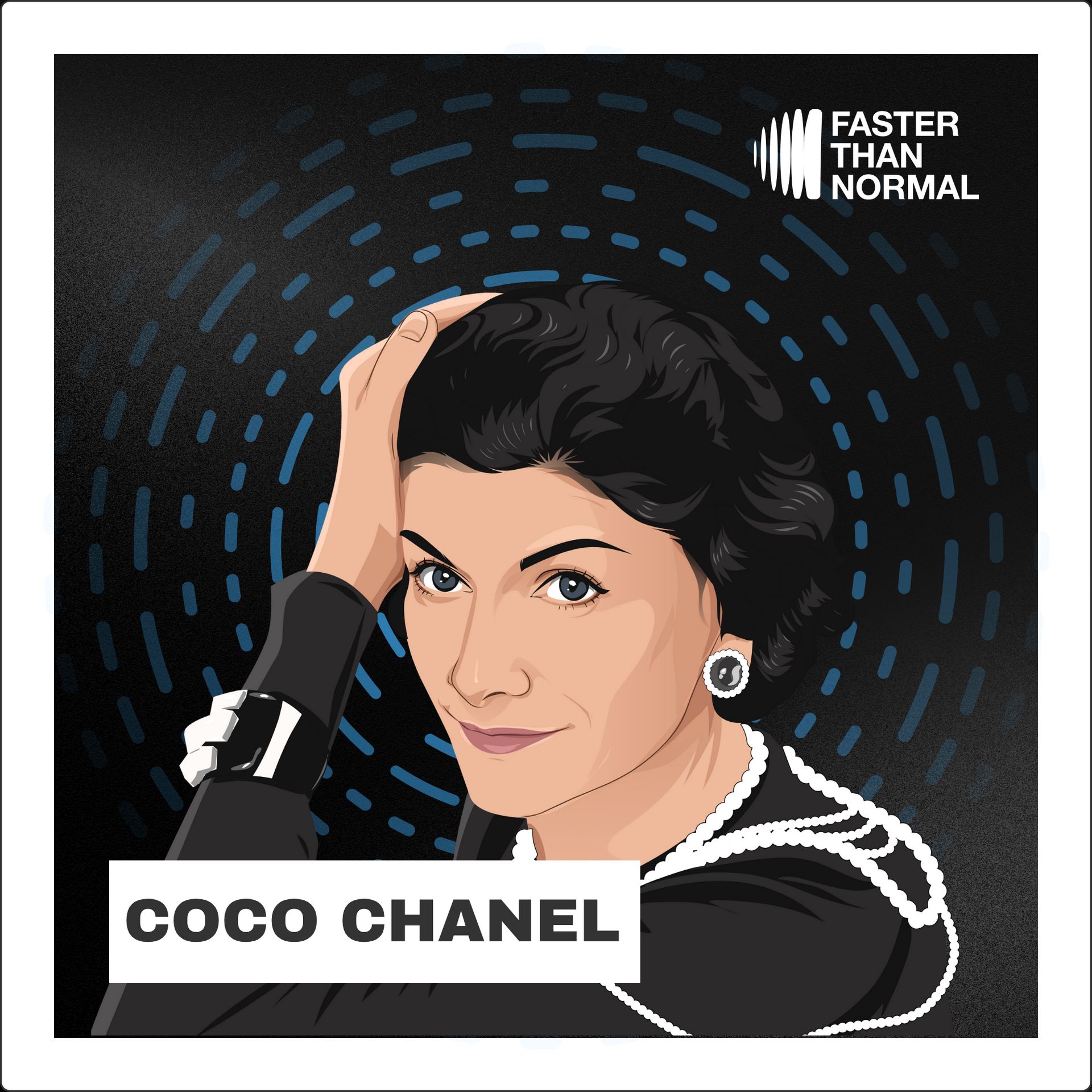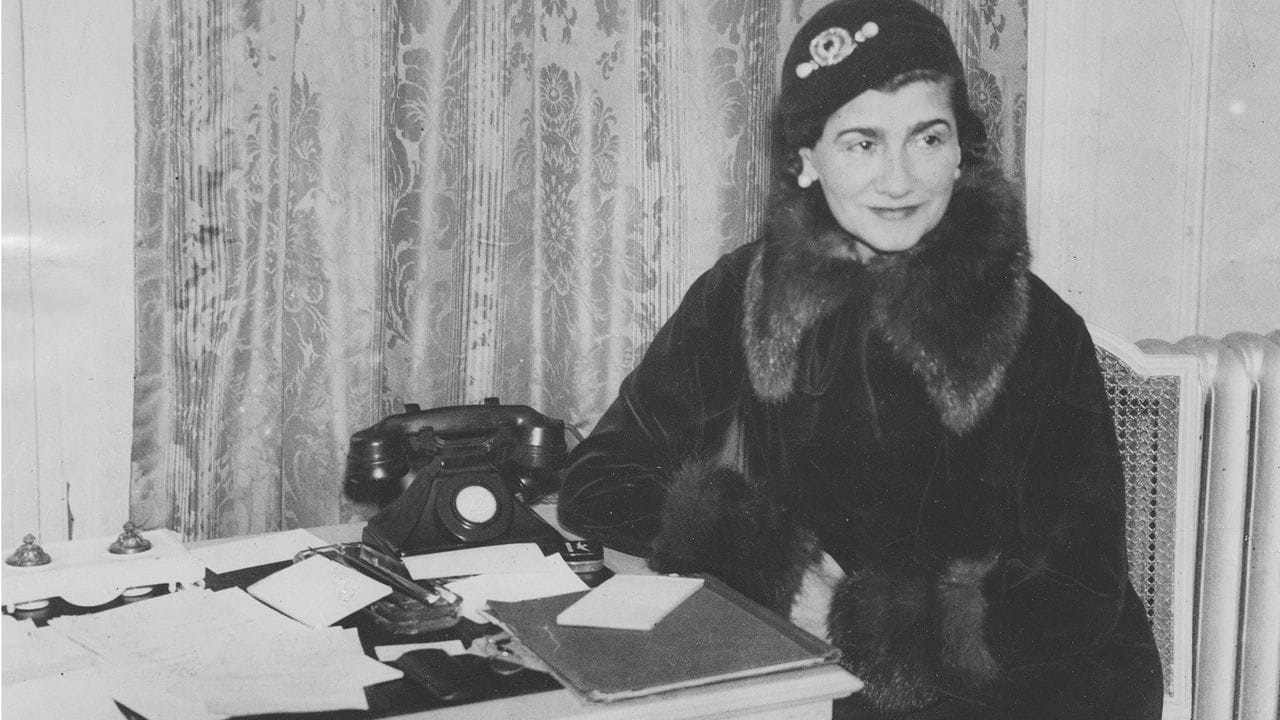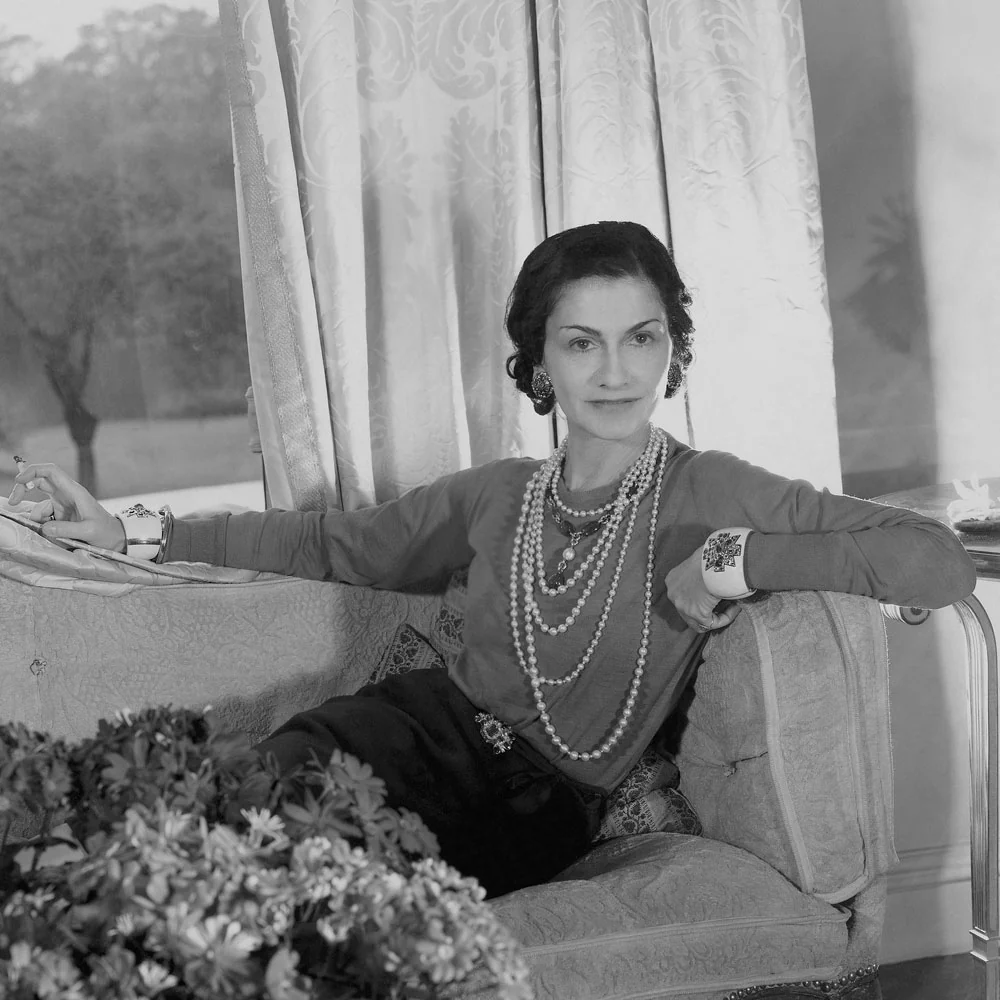November 15, 2025
•
[rtime]
mins
Coco Chanel
At a glance

This edition is brought to you by Athyna
Good morning to all new and old readers! Here is your Saturday edition of Faster Than Normal, exploring the stories, ideas, and frameworks of the world’s most prolific people and companies—and how you can apply them to build businesses, wealth, and the most important asset of all: yourself.
Today, we’re covering Coco Chanel and her journey to global influence and enduring legacy.
If you enjoy this, feel free to forward along to a friend or colleague who might too. First time reading? Sign up here.
What you’ll learn:
How Coco Chanel turned orphanage sewing lessons into a global fashion empire
Lessons on clear vision, just don’t stop and network across social classes
Quotes on branding, luxury and timing
Cheers,
Alex
P.S. Send me feedback on how we can improve. We want to be worthy of your time. I respond to every email.
Coco Chanel

Gabrielle "Coco" Chanel was born in 1883 to poor parents in rural France. Chanel's early life was marked by hardship. Her mother died when she was 12, and her father abandoned her to an orphanage. Tough start.
But Chanel had grit. And talent. At the orphanage, she learned to sew. This skill would become her ticket out of poverty.
"Poverty was the soil that nurtured my determination," Chanel once said.
In her early 20s, Chanel got a job as a seamstress. She moonlighted as a cabaret singer. It was here she earned her nickname "Coco" - possibly from a song she often performed.
Chanel's big break came through her relationships with wealthy men. They provided the capital and connections for her to open her first shop in Paris in 1910. She started with hats.
Her designs were different. Simple. Practical. A stark contrast to the ornate styles of the time. Women loved them.

"Simplicity is the keynote of all true elegance," Chanel declared.
But building a fashion empire wasn't easy. Chanel faced skepticism as a woman in a male-dominated industry. Her unconventional designs were sometimes mocked. She struggled to secure loans and expand her business.
Chanel persevered. She worked long hours. Made tough decisions. Took risks.
World War I changed everything. As men went off to fight, women entered the workforce en masse. They needed practical, comfortable clothing. Chanel delivered.
She introduced jersey fabric - previously used only for men's underwear - into women's fashion. Scandalous. But revolutionary. Her designs allowed women to move freely.
"A girl should be two things: classy and fabulous," Chanel said.
By the 1920s, Chanel had built a fashion empire. Her brand expanded beyond clothing to perfume, jewelry, and accessories. Chanel No. 5, launched in 1921, became the world's best-selling perfume.
Chanel's success was staggering. By 1935, she employed 4,000 people. Her personal wealth was estimated at $15 million - over $290 million in today's dollars.
"In order to be irreplaceable one must always be different," Chanel said.
But Chanel's journey wasn't over. World War II forced her to close her fashion house. She lived in exile for years, her reputation tarnished by allegations of Nazi collaboration.
At 70, when most would retire, Chanel staged a comeback. She reopened her fashion house in 1954. Against all odds, she succeeded again. Her designs, including the iconic Chanel suit, became symbols of modern elegance.
Chanel worked until her death in 1971, at 87. She left behind a fashion empire that continues to thrive today. In 2021, Chanel reported revenue of $15.6 billion.

Chanel's legacy extends beyond fashion. She helped liberate women from restrictive clothing. She proved that a woman from humble beginnings could build a global business empire.
"My life didn't please me, so I created my life," Chanel once said.
Lessons
Lesson 1: Have a clear vision. Chanel had a distinct idea of what fashion should be: simple, elegant, functional. This vision guided all her decisions. "Simplicity is the keynote of all true elegance," she said. Know what you stand for. Let it guide you.
Lesson 2: Just don’t stop. Chanel worked until her death at 87. She never stopped creating, innovating, building. "My life didn't please me, so I created my life," she said. Success isn't a destination. It's a continual process. Keep working, keep creating.
Lesson 3: Network across social classes. Chanel moved effortlessly between aristocrats and artists. She befriended both wealthy patrons and avant-garde creatives. This diverse network fueled her success. Don't limit yourself to one social circle.
Hire remote employees with confidence
Two years ago, I hired an offshore assistant , and it’s been one of the best decisions I’ve made. From marketing to customer support, it’s helped streamline work and boost productivity.
Athyna is a service that finds top remote employees in <5 days in Latam, Africa, and Sth East Asia. They cover roles in finance, creative, engineering, and product, sourcing top talent from companies like Google, AWS, Microsoft, and more.
If you’re in the market for talent, visit their website to explore options and cover all your hiring needs.
Coco Chanel Quotes
On branding: "I don't do fashion, I am fashion."
On luxury: "Luxury must be comfortable, otherwise it is not luxury."
On timing: "Dress like you are going to meet your worst enemy today."
On focus: "Don't spend time beating on a wall, hoping to transform it into a door."
On authenticity: "The most courageous act is still to think for yourself. Aloud."
On style: "Fashion changes, but style endures."
On success: "Success is most often achieved by those who don't know that failure is inevitable."
Speeches and Interviews
Book Recommendations
Further Readings
Coco Chanel (Britannica)
The true story of Coco Chanel's childhood (BBC Travel)
Coco Chanel (Wikipedia)
That’s all for today, folks. As always, please give me your feedback. Which section is your favourite? What do you want to see more or less of? Other suggestions? Please let me know.
Have a wonderful rest of week, all.
Recommendation Zone
⎯
Build Global Teams, Save Smart
Hiring remote talent has been one of the most impactful decisions I’ve made, supporting everything from marketing and customer support to operations and admin.
I’ve used Athyna, a global talent platform that helps companies quickly hire top professionals from talent-rich regions like Latin America, Southeast Asia, and Africa — often delivering up to 70% cost savings. They move fast (under 5 days), and cover roles across engineering, marketing, design, and ops.
Athyna sources talent from companies like Facebook, Uber, Zoom, and Salesforce, so you’re not sacrificing quality, just unlocking global efficiency. Highly recommend giving them a look.


Alex Brogan
Find me on X, LinkedIn, YouTube, Instagram, TikTok
Offshore Talent: Where to find the best offshore talent. Powered by Athyna.
Why Faster Than Normal? Our mission is to be a friend to the ambitious, a mentor to the becoming, and a partner to the bold. We achieve this by sharing the stories, ideas, and frameworks of the world's most prolific people and companies—and how you can apply them to build businesses, wealth, and the most important asset of all: yourself.
Faster Than Normal is a ‘state' of being’ rather than an outcome. Outlier performance requires continuous, compounded improvement. We’re your partner on this journey.
Send us your feedback and help us continuously improve our content and achieve our mission. We want to hear from you and respond to everyone.

Interested in reaching Founders, Operators, and Investors like you? To become a Faster Than Normal partner, apply here.
.png)
.png)